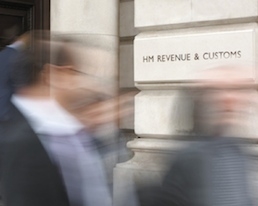Pension lifetime allowance (LTA) penalty charges surged by 21% in 2019-20 to £342m (2018-19: £283m), according to data released by HMRC.
The penalty charges are levied by HMRC for breaking lifetime limits on how much can be saved in a pension and still receive tax relief.
The pension lifetime allowance is currently £1,073,100. It has been steadily reduced in recent years and has now been frozen by the Chancellor until 2025/26.
According to scheme data released by HMRC, the total value of contributions exceeding the annual allowance was £950m in 2019-20, up from £820m in 2018-19.
Despite the limits, pension savers continue to push more money into pensions, with contributions in to personal pensions up to £31.3bn in 2019-20, compared to £27.9bn in 2018-19.
The total value of contributions to personal pensions has risen over the last three years by an average of 11% per year.
Keith Churchouse, Chartered Financial Planner at Chapters Financial in Surrey, told Financial Planning Today he was not surprised at the surge in pension lifetime allowance charges and has had some clients caught out by the charges in the past, he said.
Some of this occurred because of previous increases and then significant cuts in the allowance limits applied by HMRC causing confusion, he said.
He added that the increase in charges could discourage some clients from saving into personal pensions.
He said: "Saving up to the limit I think will still be encouraged, but thereafter is likely to be discouraged. However, the ‘noise’ that these limits make will add fuel to the fire of some who believe that pensions are not for them."
However, Mr Churchouse said he was wary of any potential major review of the pension lifetime allowance system.
He said: "I do not believe that HMRC has any option to lose the valuable and increasing revenue that the (effective for HMRC) tax restriction offers them. I think a review is only likely to make the situation worse, rather than better. Perhaps ‘better the devil you know’ would be prudent here."
Ricky Chan, Chartered Financial Planner and Certified Financial Planner at IFS Wealth & Pensions, has also had clients caught out by the pension lifetime allowance penalty charges, with many more likely to hit the lifetime allowance now than five years ago, he said.
He thinks that the lifetime allowance system needs urgent reviewing as it is, "inherently unfair to current workers and future retirees."
He shared concerns with Financial Planning Today that the increased number of people being caught out by the penalty charges was likely to put many off saving via a pension.
He said: "It’s an arbitrary “limit” and the calculations towards this is inherently unfair between defined contribution schemes (which most are in today) and defined benefit schemes (such as final salary pensions). In addition, as longevity is increasing and the UK demographics are changing - with an ageing population and fewer workers than retirees - it does not make sense to discourage people from making provisions for their retirement and old age."
Helen Morrissey, senior pensions and retirement analyst at Hargreaves Lansdown, said the latest data from HMRC showed that the good work done by auto-enrolment was at risk of being undone by an overcomplicated system that results in unexpected tax charges and discourages pension savers.
She said: “The healthy pre-pandemic picture for personal pensions shows the numbers of savers and contributions on the up. However, an already highly complex system is catching out increasing numbers of people as the amount of annual and lifetime allowance charges continues to soar.
“Annual allowance charges grew by around 15% compared to the previous year and the value of tax charges is up around nine-fold in the past five years alone. Auto-enrolment has done much to involve people in pension saving but we must ensure this good work is not being undone by needless complexity that results in unexpected tax charges and disengages pension savers.
“These huge increases show people are increasingly being caught out by a system that includes not only the standard £40,000 annual allowance but also a tapered and money purchase version as well.”

